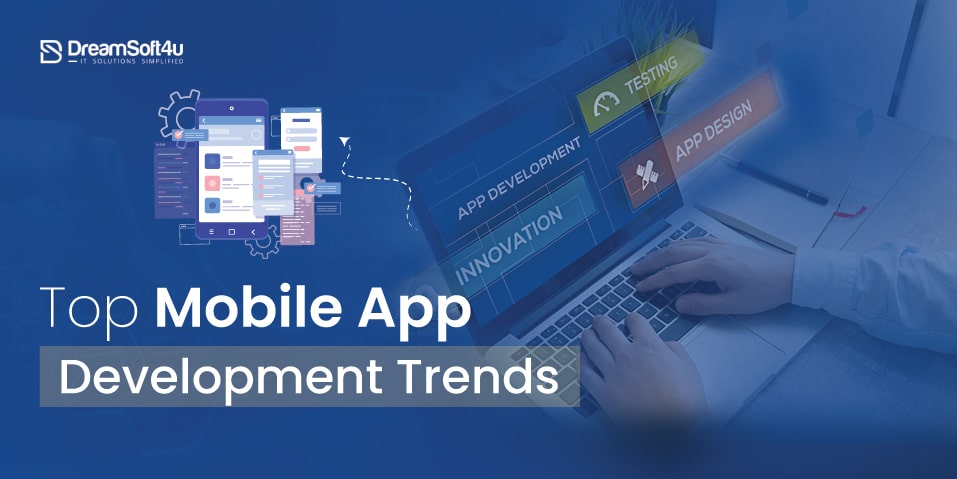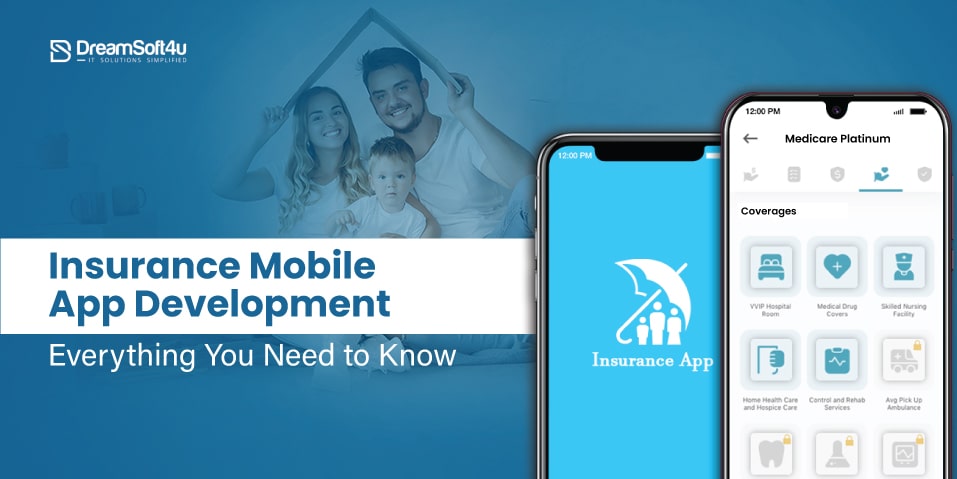Day by day, reliance on smartphones is emerging. As a consequence, software developers do not miss any opportunity to create mobile apps for different applications and deliver them to consumers. The mobile app industry is primarily focused on the rapid growth of the IoT market, as it allows more knowledge to be used to refine and enhance the device features used by end-users.
About 50 percent of web traffic comes from mobile users, according to a recent report. This suggests that companies have to find ways of gaining smartphone users’ interest. Developing a smartphone application for their company will be the perfect way to do it.
For over a decade now, mobile apps have been the cutting-edge of innovation. Most businesses are seeking ways to integrate mobile apps into their workflow. They need to tap into the mobile revolution to stimulate their consumer outreach.
If you are looking to build an app that can have a better user experience and has a better user interface as well. You will then discover the two main styles of apps: the Native app and the Hybrid app. There are quite a few things you need to think about when planning to create an app, either a native or a hybrid, depending on your business goals and objectives. In this post, you will learn all the details you need to know about hybrid app creation and native app development.
Table of Contents
ToggleWhat is Native App Development?
A smartphone application explicitly designed for a mobile operating system is a native app.
Since the app is designed according to the OS’s technological and user experience guidelines within a mature ecosystem, it not only has the advantage of faster efficiency but also ‘feels right.’
For devices with a specific OS, a native app is a program that has been programmed in a particular programming language. For example, for iOS or Java for Android Phones, Objective C is used.
As these apps are built using the default solutions of the platform, mobile app developers have complete and simpler access to the functionality of the application.
Popular frameworks used for native app development are:
- Swift
- Objective C
- Java
- Kotlin
What is Hybrid App Development?
A hybrid app is a program constructed and wrapped in a native container using HTML 5, CSS, and JavaScript. Building and managing one app project across various platforms is the hybrid app development approach: Android, iOS, Windows. Hybrid mobile apps are apps that, much like any other app, are installed on a smartphone.
What distinguishes them is the fact that they have components from native apps, apps created for a particular platform such as iOS or Android, with components from web apps, websites that function like apps but are not installed on a smartphone but accessible through a browser on the Internet.
Popular frameworks used for hybrid mobile app development are:
- React Native
- Xamarin
- Ionic
- Flutter
Difference between Native App and Hybrid App
Smartphones have become an invaluable part of human life, and as the industry undergoes rapid and revolutionary growth, their effect on society can only increase. Different cutting-edge innovations have been implemented in this age of mobile app supremacy to keep pace with consumers’ demands and make the development process more effective. Based on their choice, mobile app developers have the option to build either Native or Hybrid mobile apps. — Of these innovations has its advantages and disadvantages, and it is up to the developer to determine which way to build the app.
It is possible to list the key differences between native and hybrid apps as:
- Compared to native apps, hybrid apps require less time and less money to create.
- In contrast to hybrid apps, native apps have a much better user experience.
- You only need to create one code on all platforms, while you need a different code for each of the platforms you choose to launch your application on in native apps.
- Since native apps are explicitly built for various screen sizes for each platform, hardware capabilities etc. are all taken care of, which is far from true in the case of a hybrid app.
- Native apps can exploit the device’s native features, while hybrid apps can not.
- Hybrid provides cross-platform UI, but not native.
- Native apps cost more than hybrid apps to hire a developer and manage the software on different platforms.
- Native applications are quicker and more robust than hybrid applications.
- Only the target platform is supported in the native app, while different platforms like Android, iOS, Windows mobile, etc. are supported in hybrid applications.
- Native apps are more stable as they are funded by major organisations such as Google and Apple, whereas hybrid apps are less stable as they require third-party network support, thus raising the risk of breaking code changes and bugs.
- Hybrid systems are easier and simpler to build than native
Last words…
Dreamsoft4u Pvt. Ltd is the Best Android App Development Company in USA and India. Just let us know your mobile app development idea and we will convert your concept into reality. Our developers have innovative solutions for converting your ideas into an intuitive app. We will assist you in your android application development project to boost your business. We design it in a way that users spend more time in the app and the business grows along with app downloads.
Want to reach us then contact us: (+1)-949-340-7490 | Mail at enquiry@localhost
















